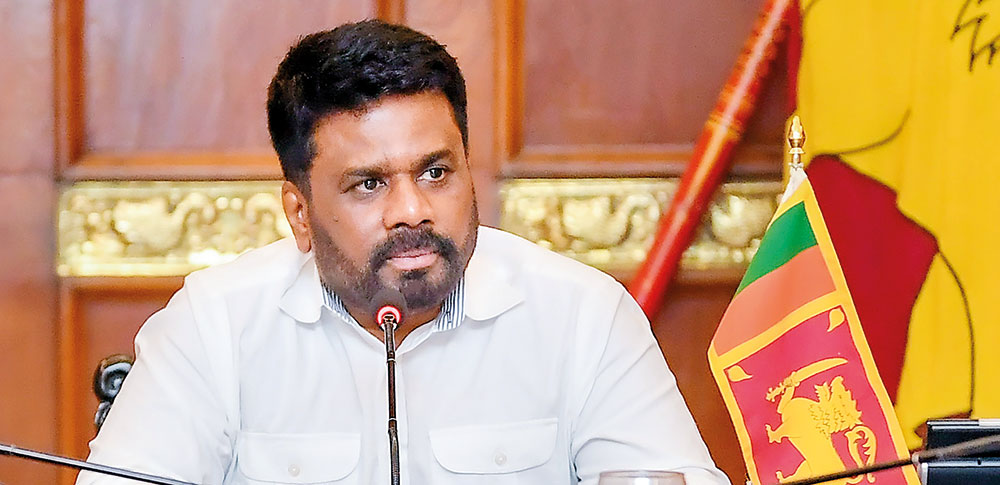Friday Feb 20, 2026
Friday Feb 20, 2026
Wednesday, 6 August 2025 00:00 - - {{hitsCtrl.values.hits}}

A new report released by the Finance Ministry yesterday showed that the fiscal deficit had contracted by 32.3% from a year ago to Rs. 405.6 billion during the first half of 2025.
This is an encouraging indicator that the Government was sticking to its economic stabilisation path. The ‘Fiscal Review Report January – July 2025’ said the fiscal deficit decline was mainly due to the 24.7% increase in Government revenue, including grants, to Rs. 2.3 trillion in this period, up from Rs. 1.8 trillion a year earlier.
Income tax revenue increased to Rs. 489 billion, up 9.2% from Rs. 447 billion a year ago, while VAT collections rose 27.6% to Rs876 billion, up from Rs. 645 billion a year ago.
In the first half of 2025, the key revenue agencies achieved 46.9% of their annual estimates. The Inland Revenue department was the largest contributor at 48.2% of the revenue collected, followed by Customs at 45.6%.
Revenue from VAT on imports increased 34.3% to Rs. 354 billion, and revenue from the Special Commodity Levy increased 70.5% to Rs. 77.6 billion.
Revenue from Excise Duty on motor vehicles surged 335.6% to Rs. 129.1 billion in the first half of 2025, while Excise Duty collections from cigarettes fell 17.9% to Rs. 44 billion, but increased by 9.2% to Rs. 108.2 billion for liquor.
The IMF in July flagged the dependence on revenue gains from motor vehicle imports.
“High-frequency data suggest steady growth in motor vehicle imports after the removal of import restrictions on 1 February, with around $ 675 million in letters of credit opened and corresponding tax collection at 0.5% of GDP by June 10,” it said in its fourth review of the Extended Fund Facility (EFF).
“Given the reliance of 2025 revenue gains (around 80% on this single measure, the authorities are committed to implementing appropriate contingency measures to protect medium-term revenue if signs of underperformance emerge”.
Meanwhile, total expenditure increased by 10.9% to Rs. 2.7 trillion, up from Rs. 2.4 trillion a year ago, with recurrent expenditure increasing by 13% to Rs. 2.5 trillion, from Rs. 2.2 trillion. Total interest payments increased by 10.7% to Rs. 1.2 trillion.
However, capital expenditure and net lending fell 8.6% to Rs. 224 billion. Here too, the IMF indicated further steps were needed to enhance the execution of capital spending to support growth.
“The capital spending budget has been under-executed by 1.1% of GDP on average in 2023-24. Weaknesses in project appraisal, monitoring and evaluation due to the lack of a unified database have contributed to insufficient prioritisation and under-execution. The authorities should utilise the upcoming IMF technical assistance on the Public Investment Management Appraisal (PIMA) update to develop strategic plans and improve public investment execution and efficiency,” the IMF said.